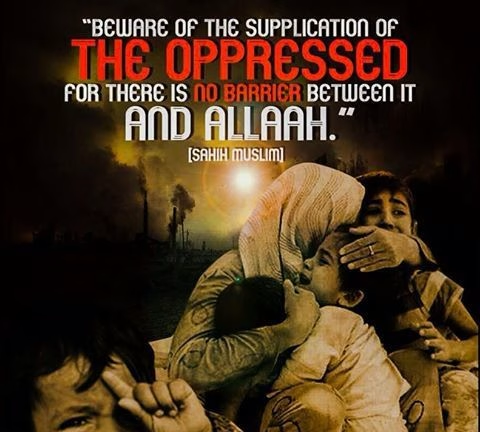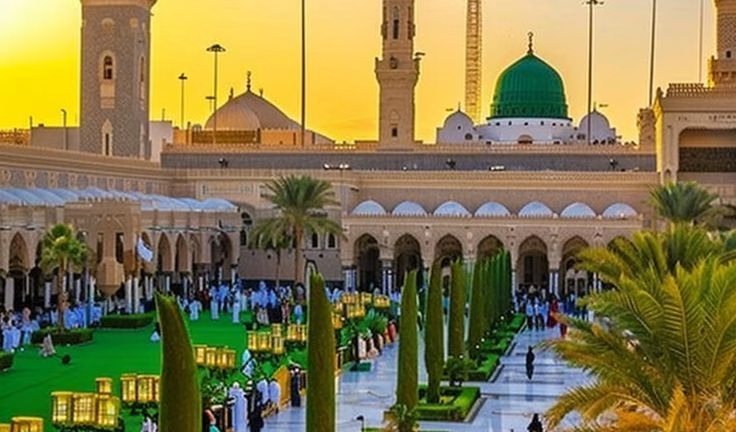Title: The Scourge of Zulm: A Warning from the Quran, Hadith, and Stories of the Past
Meta Description: Zulm, or oppression, is a grave sin in Islam. This post explores the Quranic warnings, powerful Hadith, and moving stories that highlight the severe consequences of oppression and the immense reward for justice.
In the heart of Islamic teachings lies a powerful and urgent warning against a spiritual, social, and moral disease: Zulm. Often translated as “oppression,” “injustice,” or “wrongdoing,” Zulm is far more than just a social ill. It is the act of placing something in a place that is not its own—a violation of the divine balance and rights granted by Allah.
It is transgressing against the rights of Allah or the rights of His creation. In a world rife with injustice, understanding the gravity of Zulm is more critical than ever for every Muslim.
What is Zulm? The Quranic Definition
The Quran uses the word “Zulm” and its derivatives extensively, painting a clear picture of its meaning. At its core, Zulm is to wrong oneself, others, or society by disobeying Allah’s commands.
Allah says in the Quran:
“And whoever does not repent – then it is those who are the wrongdoers (Zalimun).” (Surah Al-Hujurat, 49:11)
Another profound verse states:
“And your Lord is not ever unjust to [His] servants.” (Surah Fussilat, 41:46)
This verse highlights that Allah is Al-`Adl (The Just) and free from all injustice. The ultimate injustice is Shirk (associating partners with Allah), but the term encompasses all forms of transgression.
The Grave Warning: Hadith on the Consequences of Oppression
The Prophet Muhammad (ﷺ) delivered stark warnings about Zulm, emphasizing its consequences in this life and the Hereafter.
- The Supplication of the Oppressed is Never Rejected:
One of the most powerful Hadith on this matter is:
“Beware of the supplication of the oppressed, for there is no barrier between it and Allah.” (Sahih al-Bukhari)
This is a terrifying and empowering reality. The du’a of someone who has been wronged, even if they are a non-Muslim, is accepted by Allah. It climbs swiftly to the heavens, and Allah says to it, “I will surely help you, even after a while.”
- Oppression Will Be Darkness on the Day of Judgment:
The Prophet(ﷺ) said:
“O My servants, I have forbidden oppression for Myself and have made it forbidden amongst you, so do not oppress one another…” (Sahih Muslim)
In the lengthy and profound Hadith Qudsi, Allah declares that oppression is forbidden by His very nature. On the Day of Resurrection, when there is no light but the light of one’s deeds, the oppressor will be plunged into darkness because of the injustices they committed.
- Taking the Rights of Others Leads to Hellfire:
The Prophet(ﷺ) warned about the minor injustices we might overlook:
“The one who has oppressed another concerning his reputation or anything else should seek to be absolved by him today (i.e., in this world), before (the Day of Resurrection when) there will be no dinar and no dirham. If he has any good deeds to his credit, they will be taken from him in proportion to the injustice he committed, and if he has no good deeds, then the evil deeds of the oppressed will be taken and loaded upon him.” (Sahih al-Bukhari)
This is a profound warning. On that Day, if you have wronged someone and not settled the score in this life, your good deeds will be given to them. If you have none, their sins will be placed upon you, potentially dragging you into the Fire.
Stories of Zulm and Its Consequences
Story 1: The Three Men in the Cave
This famous story from Sahih al-Bukhari perfectly illustrates the power of righteous deeds and the danger of Zulm.
Three men were trapped in a cave by a fallen rock. They could not escape. They decided to supplicate to Allah by mentioning their most sincere righteous deeds. One man mentioned his obedience to his parents, another his avoidance of a major sin for the sake of Allah, and the third his honesty and trustworthiness with someone’s wealth.
In each case, they recalled a moment where they fulfilled a right and avoided Zulm. Because of their sincerity and their avoidance of oppressing others, the rock shifted each time, until they were finally freed. The story shows that being free from Zulm is a means of salvation.
Breaking the Cycle: How to Avoid and Rectify Zulm
- Seek Taqwa (God-Consciousness): Constantly be aware that Allah is watching. This is the ultimate deterrent.
- Fulfill Rights (Huqooq): Be meticulous in fulfilling the rights of Allah (prayer, fasting) and the rights of people (paying debts, being kind to parents, fulfilling promises).
- Seek Immediate Forgiveness: If you have wronged someone, go to them now. Apologize, return their right, and seek their forgiveness before a Day comes when there is no currency but deeds.
- Stand Against Injustice: The Prophet (ﷺ) said, “Help your brother, whether he is an oppressor or is being oppressed.” A companion asked, “O Messenger of Allah, I help him if he is oppressed, but how do I help him if he is an oppressor?” The Prophet (ﷺ) replied, “You prevent him from oppressing others, for that is how you help him.” (Sahih al-Bukhari)
Conclusion
Zulm is a path to spiritual ruin and societal collapse. It is a poison that destroys the oppressor in the Hereafter and brings misery to the oppressed in this world. Let the words of the Quran and the Hadith be a constant reminder for us to be people of justice, to stand up for what is right, and to constantly check our own actions to ensure we are not—knowingly or unknowingly—among the wrongdoers.
May Allah protect us from being oppressors, from being oppressed, and from being silent in the face of oppression. Ameen.
Tags: Zulm, Oppression, Injustice, Islam, Hadith, Quran, Islamic Ethics, Social Justice, Rights in Islam, Day of Judgment, Repentance


